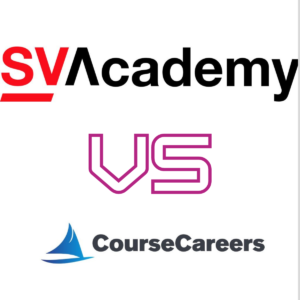Are you thinking about going to college to get an education so you can be considered “educated” afterward? Or perhaps you did graduate from college and think you’re educated, but can’t seem to convince employers of that.
1) College doesn’t mean you’re educated
Let’s start by first defining what education really is. Here are the first two definitions to pop up on google.
“The act or process of imparting or acquiring general knowledge, developing the powers of reasoning and judgment, and generally of preparing oneself or others intellectually for mature life.”
The idea you’ve been sold of what a college education will provide you actually aligns very closely with this first definition. You’re told that by going to college you will spend the first two years learning very broad and general knowledge to develop your worldly reasoning skills so you can be an educated adult.
While this might sound great on paper, it doesn’t work too well in practice. The first problem is that the general education you learn in college is so disconnected from most student’s real lives that it doesn’t impact any of the reasoning skills they would use in the real world for mature life.
The other problem is that whatever students did learn during these two years deteriorates at an extremely fast pace since knowledge is only retained if it is used.
One study showed that forty-five percent of students made no significant improvement in their critical thinking, reasoning or writing skills during the first two years of college.
This study is pretty insane considering that just growing up from age 18-20 should have a considerable impact on your thought process. Probably living on your own for the first time, getting a job, doing taxes, etc.
This means that 45% of students might have actually went backward during college and the other 55% that did improve, most of it can likely be attributed to just growing up.
“The act or process of imparting or acquiring particular knowledge or skills, as for a profession.”
Colleges also sell you on the idea that your degree will give you the skills you need to land a professional job. That idea is in line with the second definition of what an education is.
This idea couldn’t be further from the truth for the majority of degrees currently offered at colleges. Most degrees do nothing of the sort. They do not impart valuable knowledge or skills required to get a professional job.
Degrees such as business, communications, marketing, psychology, international studies, etc. The list goes on and on. None of these degrees give you the “particular” knowledge or skills required for a specific profession.
All these degrees give you is very broad knowledge, often with very few skills that doesn’t qualify you to do any one particular profession. This is what’s creating the biggest problem in our society.
It’s the expectations vs reality gap that many recent graduates go through. They are expecting to be able to land a professional job to pay off their student loans, but quickly realize that’s not the case.
The ones who do end up starting a professional career often go back to step one of figuring out what it is they want to do, then acquiring the particular knowledge/skills required for that profession.
2) How you really become educated
How do you really become educated if college doesn’t do it? Well, we know there are two parts to an education.
- General education to improve decision making and your personal life.
- Professional education to start or advance your career.
The way people actually become educated follows a framework similar to this:
First – Acquire particular knowledge and skills to start your professional career. This will put you on a path to be able to support yourself and continue learning professional education to advance your career.
Second – Learn general education as needed. Learn about politics when you start voting. Learn about taxes when you start paying taxes. Learn about finance when you start saving money. Learn about mortgages when you buy a house. Learn about economics when you start investing. Learn different languages when you start traveling. Learn about whatever hobbies you’re interested in at the time.
In reality, it takes time to become truly educated. You have to go through different life experiences before you start caring about learning many of these different subjects. There is no magic 4-year pill you can take that makes you educated afterward.
The medium in which you can become educated has also changed in recent years. What I mean by the medium is the way you go about learning knowledge and skills. Whether that’s through a classroom, book, video, article, mentor, on the job training, etc.
While classrooms used to be the main source of education, nowadays it’s completely different. Students are doing the majority of their learning online, outside of the classroom. They read books, watch lectures online, do practice assignments online, interact on discussion forums, and even get answers to questions in real-time.
The idea that college is the only place or even the best place to be able to learn new things is a very outdated one.
3) What needs to change
There are a few outdated ideas that need to change in our society to align with the reality we live in today.
The idea that you need to go to college to be successful
This idea is particularly harmful since it puts students in a very stressful situation to choose between student loan debt or a degree. The ones who do choose a degree often face the expectations vs reality gap and can’t actually get a job to pay off their student loans.
Other than the harm it causes many students, it’s simply a false idea. As we learned, there is an immense number of ways to acquire particular knowledge and skills for a profession.
People are starting great careers every day through self-education, boot camps, online courses, and on-the-job training. Some of these people are making over $100,000 by age 22 without having any debt. That is successful!
The idea that companies and governments think college is the only indicator of someone being educated
Today there is another problem where both companies and governments put restrictions on jobs to require a college degree. This normally involves the larger and old companies that have always required a degree so they stick with the status quo.
Newer and more innovative companies such as Google, IBM, or Apple have abandoned their degree requirements. This has created a trend where many companies hiring in business or technical fields no longer require degrees.
Over time the government will update many of their internal jobs that require a degree to start or get promoted. They will also update the regulations on which careers still need to require college to learn such as finance or law.
The idea that statisticians determine how educated a populous is based on their college degree
Lastly, statisticians need to change the way they determine the level of education a population has. Using college degrees as their main factor is no longer an accurate representation of the real education a group has.
Times have changed and what it means to be educated has changed too.




